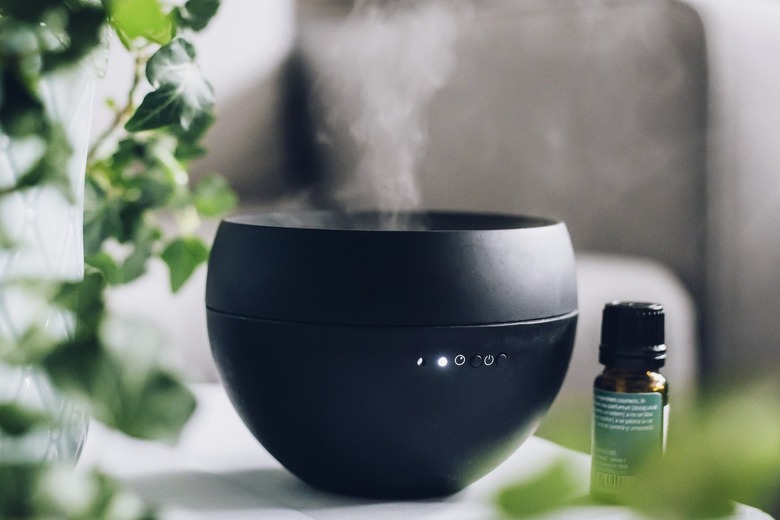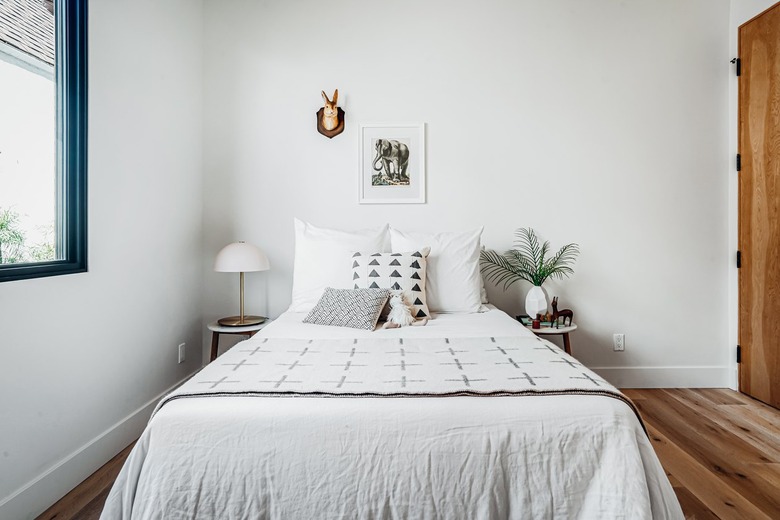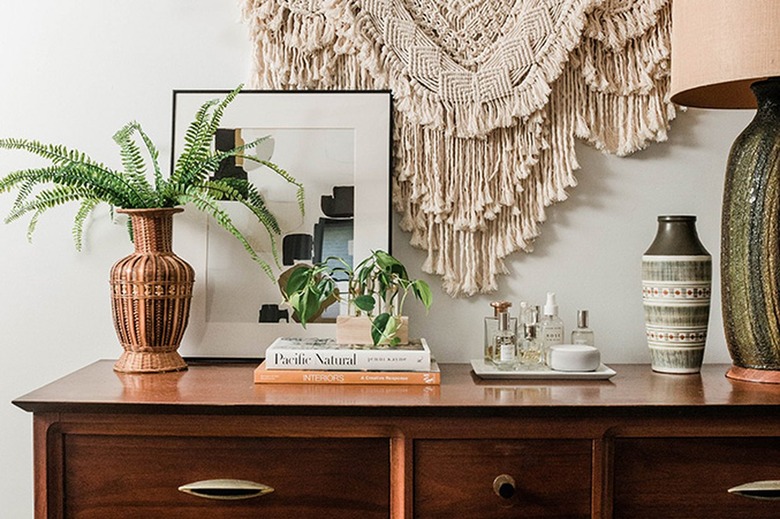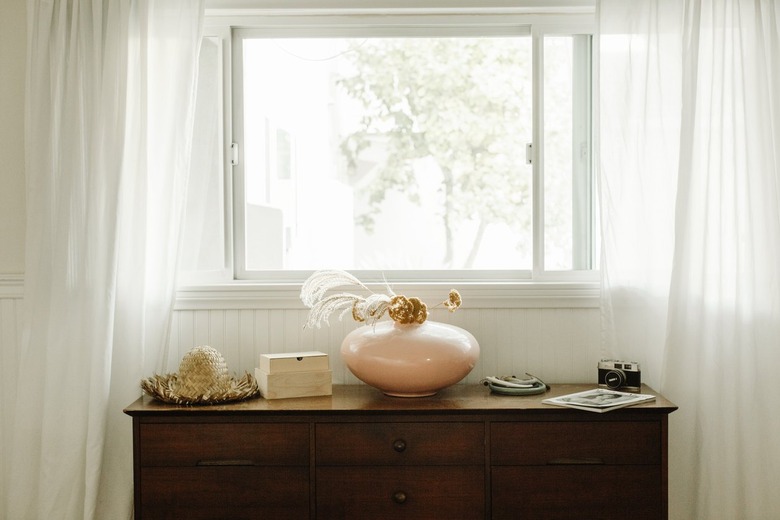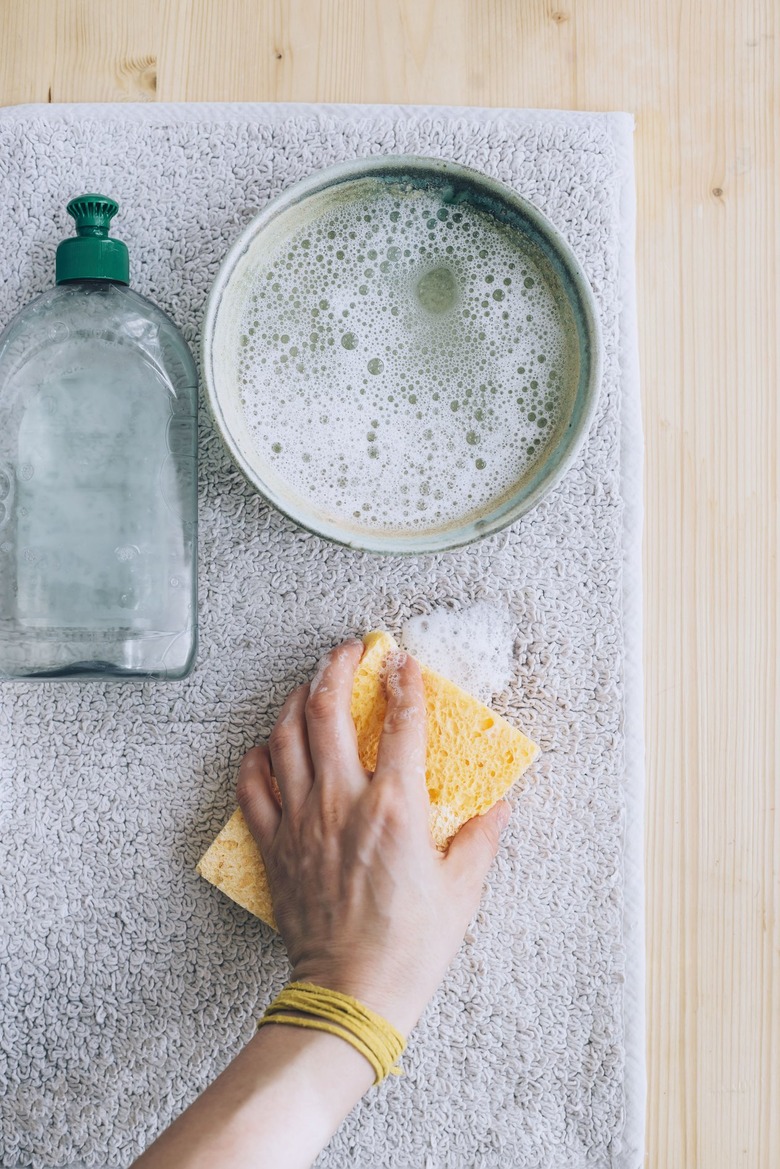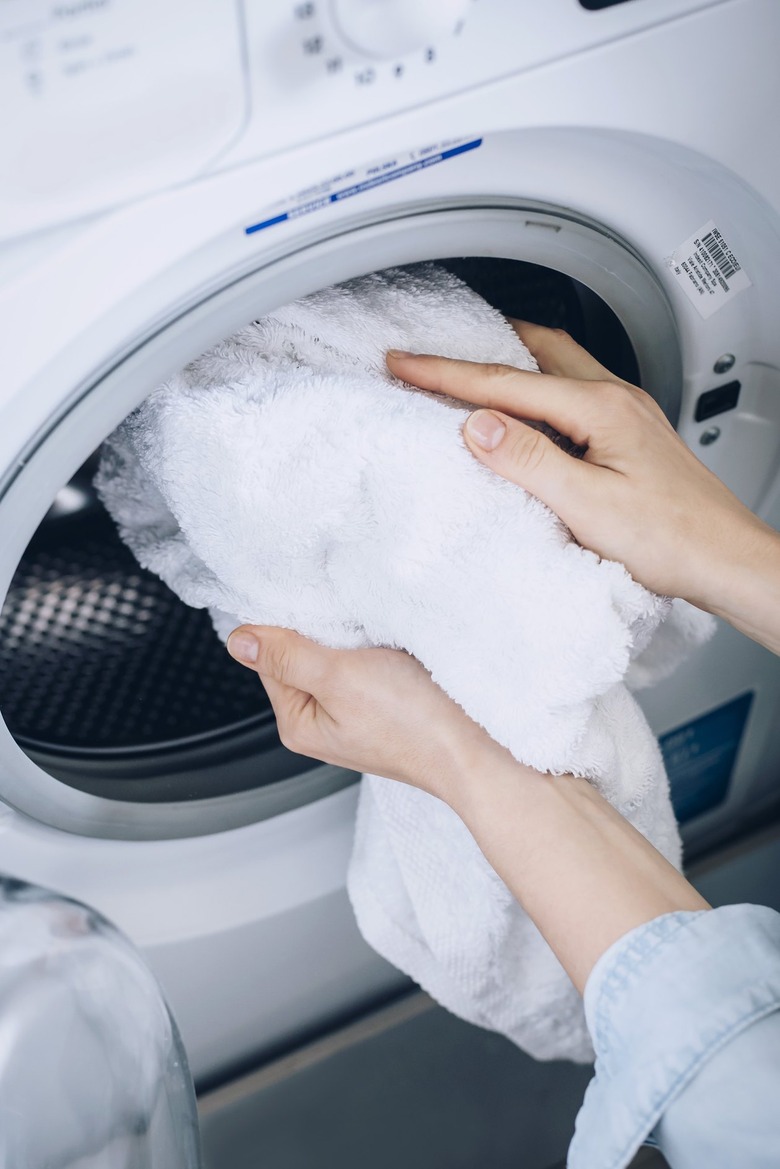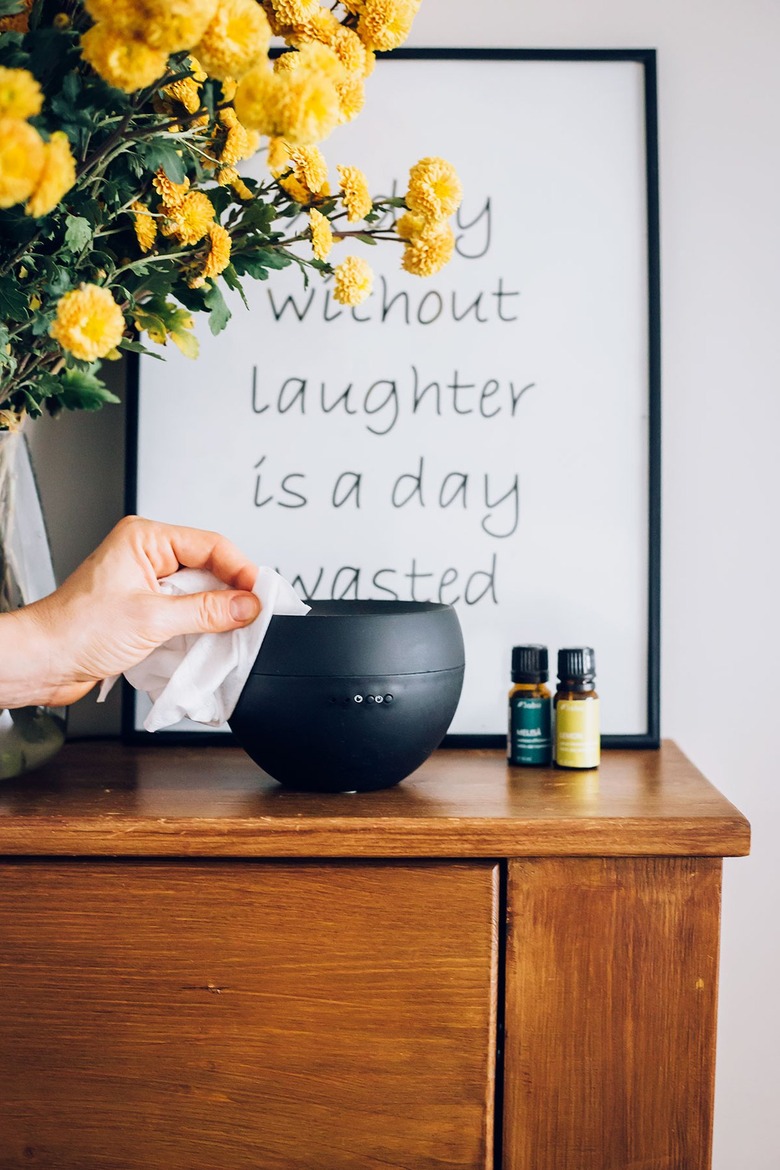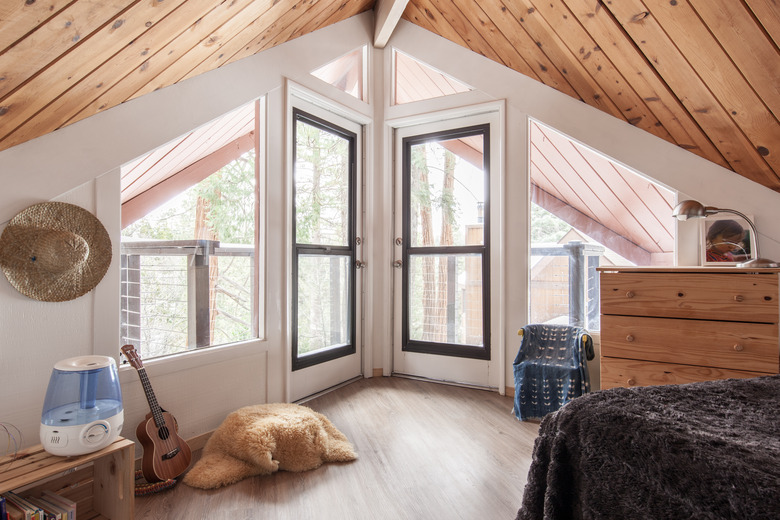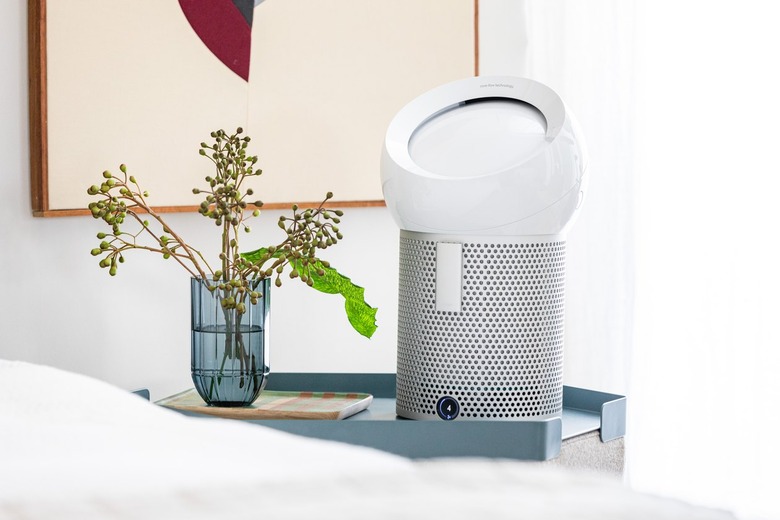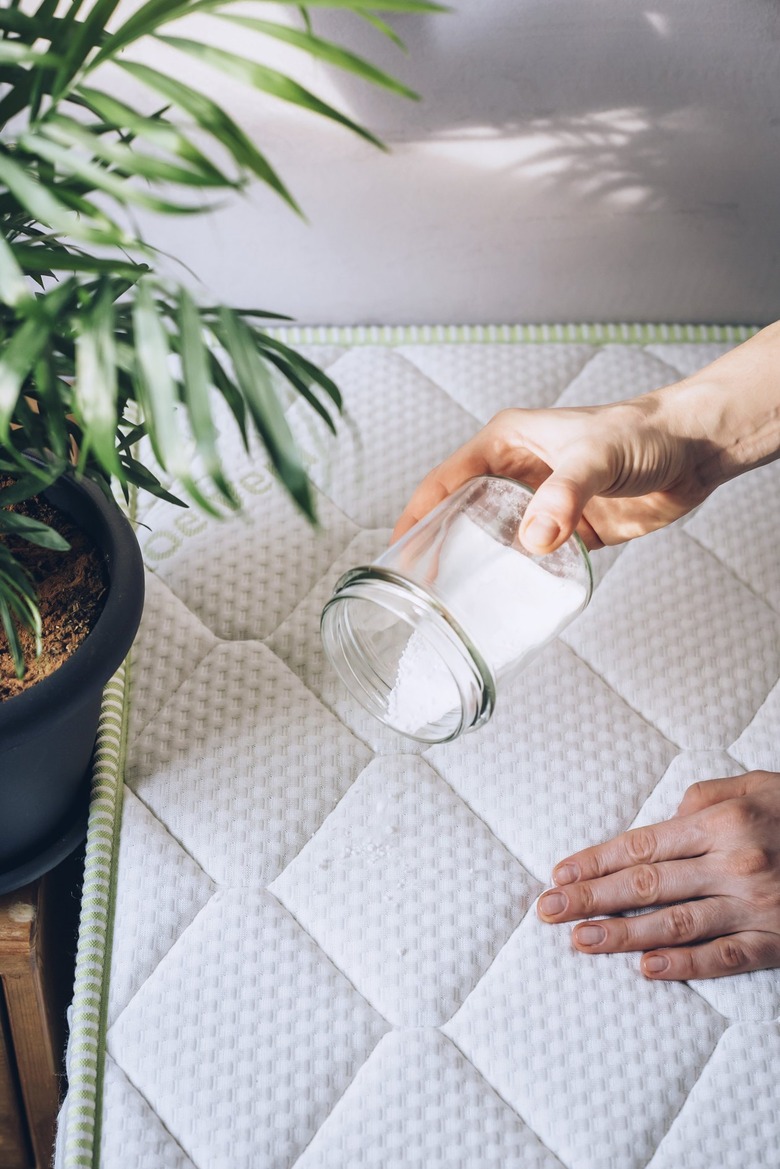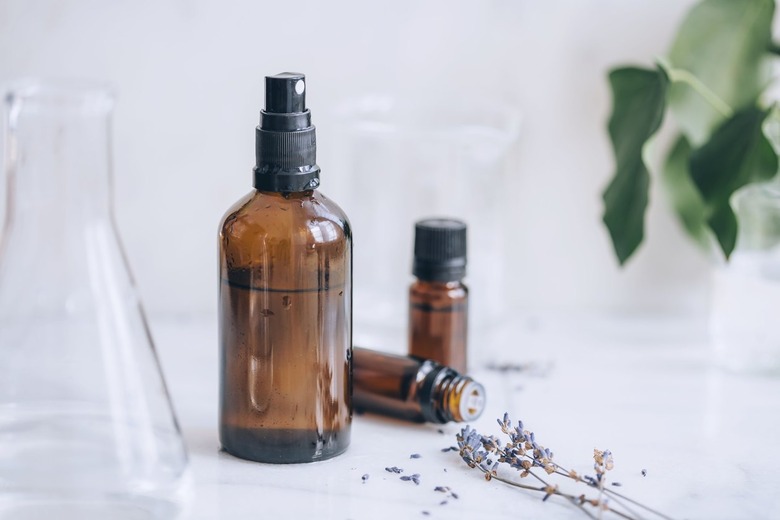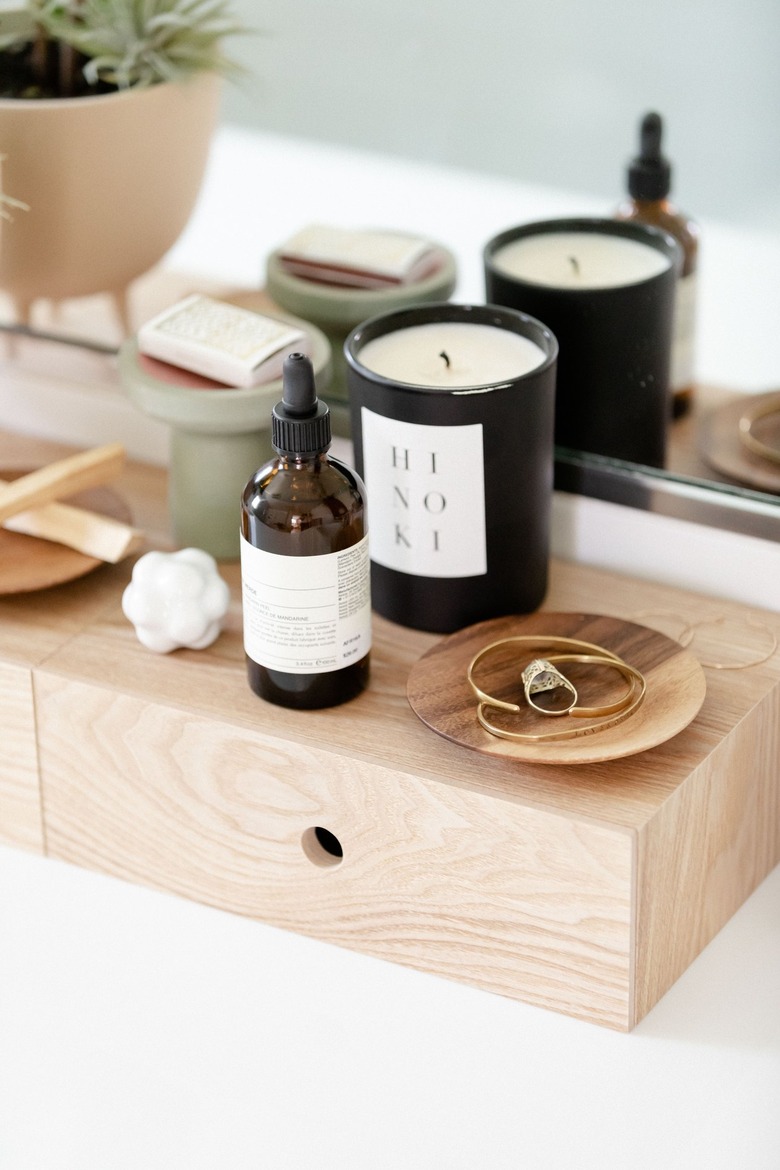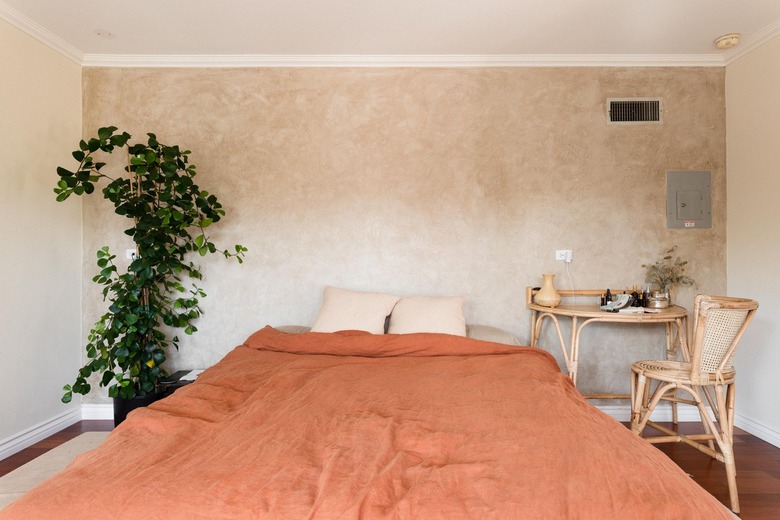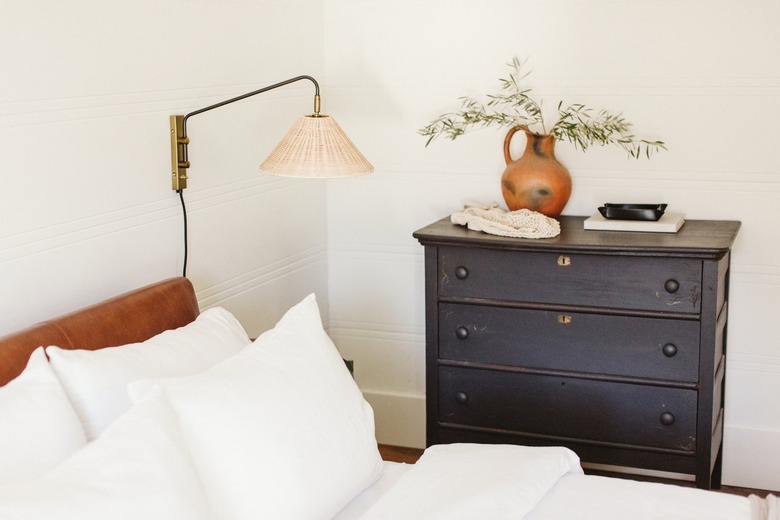How To Make Your Room Smell Good: 13 Tips And Tricks
We may receive a commission on purchases made from links.
Smell is quite powerful: It can trigger memories and emotions, complement the ambiance, and can even affect one's mood. Out of all of our five senses, it's not one that most of us pay much attention to until our nose detects an aroma. And although we all want our homes to smell good, we have to admit sometimes they just don't. Everyone's idea of what smells "good" is different, but most people prefer a neutral or barely-there, clean (but not harsh) scent. You can achieve this result with organic cleaners like vinegar, as well as fresh but not overpowering options like lavender and eucalyptus.
Before you introduce smell to any room, make sure you eliminate any unfavorable odors by cleaning thoroughly. The only thing that's worse than a foul-smelling home is one that's trying to mask bad smells with an overpowering scent.
Why Does My Room Smell Bad?
Why Does My Room Smell Bad?
Bad smells can originate from many sources, some more obvious than others. From mold and garbage to pets and dirty dishes, malodors can infiltrate a home in many different forms. The following culprits are some of the most common offenders:
Stagnant Air
It's hard to imagine that air can have a smell, but when it doesn't circulate, air can smell stale or musty. When pollutants accumulate, they have an unpleasant smell and can make any room feel stuffy. At low levels, stale air is unpleasant, but at higher levels, it can become a health risk.
Dust
Dust is more than a barely-there layer of dirt that coats furniture and belongings. In fact, it's made up of all kinds of unsavory things: dead skin, pollen, pet hair and dander, insects, insect droppings, and dirt. Yuck. It makes your home look and feel dirty, can scratch the surfaces of electronics and furniture, affects air quality, and can cause a musty smell. Individuals who suffer from allergies need to be especially diligent about cleaning dust as it can affect breathing.
Soil
Moist soil in a crawl space or under a home can be the source of unsavory musty or dank odors, especially in older homes. Left untreated, the smell can permeate and even ruin your furniture.
Food
Food that's left out, tossed in the trash bin, or put in the garbage disposal can start to wreak havoc quickly. Even food that is left in the fridge for too long — we're looking at your leftovers — can go bad and start to smell.
Dirty Laundry
Neglected laundry, particularly clothes that have gotten wet or damp — like bathing suits and exercise attire — can get stinky in a hurry. If you can't do laundry regularly, be sure to hang wet clothing, allowing it to dry before tossing it into the hamper.
Mold
Moisture is the most common culprit of unpleasant smells and can lurk in damp rooms like the bathroom, as well as unsuspecting places like the closet. If you live in a humid location, steer clear of wall-to-wall carpeting (which can trap moisture), and no matter where you live, keep wall-to-wall carpeting out of bathrooms and kitchens whenever possible. Additionally, make sure that your bathroom has a fan or window to prevent moisture from building up.
13 Ways to Make Your Room Smell Good
13 Ways to Make Your Room Smell Good
The goal isn't to mask bad odors, but rather to get rid of the root cause. The first thing you need to do is give your space a deep clean and discover the source of the bad odor. Clean obvious offenders like litter boxes, diaper pails, dirty laundry, and rotten food. You might also need to do some sleuthing to locate origins that are a little less conspicuous.
Once you've identified and taken care of the problem, it's time to improve the overall smell in your room with some of the following tips:
1. Exhaust, Ceiling, or Window Fans
Fans are an easy and affordable way to get air moving, and they come in particularly handy if the fresh air isn't very fresh — for example, if you live near a freeway, in an industrial area, or in a city where the air quality index is high. Just make sure your fan is clean before turning it on.
2. Open Windows
No surprise here, but introducing fresh air into your home by opening doors and windows can go a long way with circulating airflow, making your space feel and smell better.
3. Clean Carpets and Rugs
Carpets introduce hard-to-resist color and texture to interior spaces, absorb noise, and feel great underfoot, but they also trap germs, dirt, and environmental pollutants like pollen and mold. To keep your carpet and room smelling fresh, make sure you clean spills when they happen to minimize stains and odor — and for stubborn stains, call in the professionals.
4. Wash Sheets
A well-made bed with freshly washed (and ironed) sheets is one of life's little luxuries. Ideally, your linens should be cleaned once a week, especially considering the number of bodily odors, oils, fluids, and skin cells that your sheets are subject to on a nightly basis. Consider using scented dryer sheets (unless you have sensitive skin) for an extra dose of freshness.
5. Oil Diffusers
Diffusers add particles of essential oils to the air, imparting a variety of scents from lavender to grapefruit to cinnamon. Nature-inspired smells like eucalyptus, rosemary, lemon, and mint add freshness to rooms without overwhelming them. They can be a bit pricey, but if you're up for a DIY project, reed diffusers can be easily made at home. Just be sure to double-check that the scents you are using aren't harmful to your pets.
6. Humidifiers
Humidifiers add needed moisture to rooms in dry climates, making it easier to breathe, as well as making skin and hair softer. You can add lemon juice and essential oils to humidifiers to introduce a pleasant scent to your room (double-check the manual for your particular model to ensure this will work) and remember that humidifiers also need to be cleaned. Not surprisingly, dehumidifiers remove moisture from the air. Using a dehumidifier can help decrease the humidity in an overly humid home and can also reduce mold and dust mite build-up. If you have pets or children, you might want to consider using cool mist humidifiers instead of hot mist, to avoid any injuries.
7. Dispose of Garbage
No surprise here: Garbage can be the source of foul odors and should be taken out regularly. Before you dispose of used bags, tie them in a knot at the top (don't just cinch the bags) to prevent flies from infiltrating the bags and mating. Be sure to clean the actual garbage can periodically with bleach wipes or baking soda.
8. Air Purifiers
Air filters remove particles, but air purifiers actually sanitize the air. HEPA air purifiers with carbon filters are the most effective at eliminating smells. If you live in a cold climate, air purifiers are often used as a replacement for ventilation in the winter when it might be too chilly to open a window.
9. Odor Absorbers
If you prefer a home with a neutral smell, odor absorbers are great to have on hand. Baking soda (yup, the kind that you bake with) does wonders at absorbing unpleasant odors. Keep an open box in the refrigerator and place several small bowls throughout the house. Just be sure they're out of reach if you have pets or small children.
Baking soda can also be used as a deodorizing agent on the carpet — just sprinkle it and let it sit for several hours before vacuuming. Activated charcoal filters and dried tea leaves placed in perforated bags are hardworking natural odor absorbers. Hang them in a closet or toss them in gym bags. Even white vinegar placed in a bowl on the counter overnight can clear up any unsavory odors.
10. Room Sprays
Room sprays are great to have on hand to quickly mask unpleasant odors, anywhere from the kitchen to the bathroom. They're available in a range of scents from floral to spicy to musky and you can easily make them yourself.
11. Lemon Rinds
Give used lemons, or citrus peels, a second life by making a natural potpourri out of their rinds and simmering them in a large pot of water for an hour. It'll perfume the air with a refreshing, but not overly sweet smell. Feel free to add cinnamon sticks or herbs, such as rosemary, mint, or lavender — whatever you have on hand will work.
12. Candles
Candles also won't remove the source of the odor from your home, but they are an obvious choice and pleasant way to mask any unwanted smells. Plus, they are a quick and easy way to create a warm and cozy ambiance.
13. Plants
While houseplants are a great way to fill an empty shelf or corner, not to mention add a welcome dose of color, they are also natural air purifiers. Want to know which plants are up to the task? Check out this helpful list.
How to Keep Your Room Smelling Fresh
How to Keep Your Room Smelling Fresh
Maintaining a clean-smelling home doesn't need to take much effort if you stay on top of a few key action items.
Do Laundry Regularly
Create a set laundry schedule and wash clothes regularly, say once or twice a week depending on how much clothing you wear and cycle through. This will keep dirty clothing from piling up and causing an unpleasant odor. Remember, hang wet or damp clothing to dry before tossing it into the hamper, where it will get moldy and start to smell.
Keep Shoes Out
Oft-worn shoes can pack a punch — stow them in designated spots that are out of the way, such as the garage or neatly lined up on a front porch. Sneakers that can go in the washing machine should be washed based on need and dried outside.
Dust Often
Dusting often will prevent grime from collecting throughout your home, making your abode look and smell cleaner.
Monitor Humidity Levels
If you've battled with the humidity in your home, consider investing in a hygrometer — a device that functions as an indoor thermometer and humidity monitor.
Just a Few Things to Keep in Mind
Just a Few Things to Keep in Mind
Even if you clean your home regularly, bad smells happen. Head off potential pitfalls by tackling easy-to-manage sources of odor — empty the trash can out before it turns rank, dust regularly, stay on top of dirty laundry, and identify potential sources of mold. Whenever the weather permits, air out your room by opening windows and doors. Clean spills as they happen and call in the professionals whenever necessary. Once you identify and manage the source of a bad smell, keep it at bay with odor absorbers. And if you desire, infuse subtle scents into the air with essential oil diffusers, room sprays, or candles.
